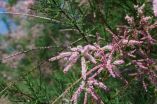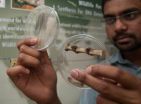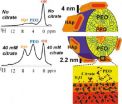(Press-News.org) They say that history is written by the victors. But the combatants, fundamental to the outcome of war, rarely appear in this history – whether victors or vanquished. University of the Basque Country anthropologists Pío Pérez and Ignazio Aiestaran have rebelled against this injustice, "uncovering" the memory of those who fought in the trenches in the 1936 war in Spain. They studied ten autobiographical accounts to produce Oroimen iheskorrak: gerra zibileko sufrimenduaren inguruko hausnarketak, euskaraz idatzitako testigantzen ikerketaren bitartez (Elusive memories: thoughts on suffering in the Civil War, using research on testimonies written in the Basque language), drawn up thanks to an Eusko Ikaskuntza Agustín Zumalabe grant.
Researchers usually focus on the technical aspects of war rather than on the suffering that the actors therein undergo. Pío Pérez and Ignazio Aiestaran, on the other hand, have reclaimed the importance of these testimonies. As Mr Pérez explained, "I was involved in studying historic memory, when I found these manuscripts belonging to the Zapirain family from Errenteria (in the Basque province of Gipuzkoa) and I thought it curious that, when the father, Joxe Zapirain, was told of two of his sons being executed by a firing squad, he broke out into song rather than tears. Why would he sing? So that the events might be recorded for posterity. Tragic testimonies such as this have two functions: so that others might read them and for the authors to pour their hearts out".
Ten autobiographies
Precisely, autobiographical accounts (Zigorpean {Under the jackboot} and Espetxeko negarrak {Tears from prison}) written by Xalbador Zapirain Ataño, another of Joxe Zapirain's sons, were studied by Pérez and Aiestaran. Their intention was to gather all the autobiographies written in Basque about the 1936 war; they found ten, many published on the initiative of Antonio Zavala by the Auspoa publishing house. Besides the two accounts in Ataño, also writing their experiences in books in Basque were Sebastian Salaberria (Neronek tirako nizkin {It was I who shot you}), Agustín Zinkunegi (Bizi naiak lege zorrotzak {Desire to live, harsh laws}), Iñaki Alkain (Gerrateko ibilerak {Episodes of the war}), Balendin Enbeita (Bizitzaren joanean{In the course of my life}), Santiago Onaindia (Oroi-txinpartak {Sparks of memory}), Jose Mari Etxaburu (Neure lau urteko ibillerak {My four years in the war}), Iñaki Isasmendi (Nire denboraldiko ibilerak {My years in the war}) and Fermin Irigaraik (Gerla urte, gezur urte {Year of war, year of lies}).
There is great diversity amongst these nine authors as regards motives for writing. Enbeita and Onaindia, for example, were strong EAJ-PNV (Basque Nationalist Party) militants, and considered it essential that they be involved in the war. Zinkunegi's opinion was quite different. "It can be seen that his autobiography is a constant flight from the war. The time comes when he is obliged to join the war and, even when he is fighting, his great obsession is how to escape. Finally, he manages to escape but the national (Franco's) forces capture him and force him to fight on their side", explains Mr Pérez. The case of Sebastián Salaberria is also curious, given that he is the only one, amongst these testimonies, who opted to fight on the side of Franco's forces. Moreover, he had a brother on the opposing side, which made him afraid that one day he might find the cadaver of his brother, since he was in charge of examining the bodies lying on the battlefield. As it happened, Sebastián Salaberria lost a leg and when his brother visited him in hospital, the latter told him that it was probably him who had inflicted the wound; thus the title of the book (Neronek tirako nizkin - It was I who shot you).
Pessimism
These two researchers also found great similarities amongst all these accounts. For example, with regard to the chronology: "All of the accounts tell of how the fascists invaded and how the Basque Battalion reacted. And they coincide with the historical facts".
They also coincide as regards pessimism: "On being defeated, it cut to the bone. Some events are really sad, especially when they see the end of the war coming, feeling, as they did, defeated". Not even Salaberria considered himself a victor. "They won but he did not feel that that war was his. He lost a leg and that was something that marked him for the rest of his life. Besides, some victors made money out of it, but not him. They gave him some job at the Town Hall, but he did not get anything else", explained Mr Pérez.
Coherence peppered with incoherencies
From an anthropological viewpoint, this research poses questions that are food for thought. For example, the evasive relationship between the autobiographies and coherence. Mr Pérez explained that, in the autobiographies, their authors "try to give coherence to a life full of incoherencies"; i.e. they attempt to provide the narrative with a certain logic, and incorporate all the events, feelings and other things within this logic. "And we accept the result of this combination as something true and objective". In reference to this, the relation between the fictionalised testimonies and reality could also be subject for debate. Nevertheless, Mr Pérez made it clear that the aim of this study was not to gather historical data, but to see the war through the eyes of the eye witness.
Pérez and Aiestaran anticipate presenting the first presentation in June, but aim to continue working on this topic after this presentation; how this suffering manifested itself, the importance of the testimonies, how the Basques viewed the war while it was happening and a posteriori… They are now looking at another topic, too: "We perceive another perspective of the civil war; here it was not perceived as a fight against fascism. In all the testimonies, it is pessimism that is perceived as regards the struggle, the Spanish Republic… there is a lot more here to be looked at and that is what we might do now".
### END
Anthropologists study autobiographies in Basque of people who took part in the Spanish War
University of the Basque Country researchers Pío Pérez and Ignazio Aiestaran uncover the memory of those who fought in the trenches
2011-06-09
ELSE PRESS RELEASES FROM THIS DATE:
Lack of relationships, education top list of common American regrets
2011-06-09
Los Angeles, CA (June 8, 2011) Regrets—we've all had a few. Although too many regrets can interfere with life and mental health, a healthy amount of regret can motivate us to improve our lives, say researchers Mike Morrison of the University of Illinois and Neal Roese of Northwestern University in the current issue of Social Psychological and Personality Science (published by SAGE).
The researchers telephoned a representative sample of nearly 400 Americans to ask them about what they regret. The most frequent regrets of Americans are about love, education, and work. ...
Jellyfish blooms transfer food energy from fish to bacteria
2011-06-09
Jellyfish can be a nuisance to bathers and boaters in the Chesapeake Bay on the United States' East Coast and many other places along the world's coasts.
A new study by researchers at the Virginia Institute of Marine Science (VIMS) shows that jellyfish also have a more significant impact, drastically altering marine food webs by shunting food energy toward bacteria.
An apparent increase in the size and frequency of jellyfish blooms in coastal and estuarine waters around the world during the last few decades means that jellies' impact on marine food webs is likely to ...
Penn researchers develop biological circuit components, new microscope technique for measuring them
2011-06-09
PHILADELPHIA — Electrical engineers have long been toying with the idea of designing biological molecules that can be directly integrated into electronic circuits. University of Pennsylvania researchers have developed a way to form these structures so they can operate in open-air environments, and, more important, have developed a new microscope technique that can measure the electrical properties of these and similar devices.
The research was conducted by Dawn Bonnell, Trustee Chair Professor and director of the Nano/Bio Interface Center, graduate students Kendra Kathan-Galipeau ...
New 3-D tumor model
2011-06-09
College Park, Md. (June 08, 2011) – A team of scientists has developed a way to coax tumor cells in the lab to grow into 3-D spheres. Their discovery takes advantage of an earlier technique of producing spherical cavities in a common polymer and promises more accurate tests of new cancer therapies.
As team leader Michael R. King, Ph.D., of Cornell University explains, "Sometimes engineering research tends to be a case of a hammer looking for a nail. We knew our previous discovery was new and it was cool. And now we know it's useful."
Three years ago, the team -- in ...
Ecology biased against non-native species?
2011-06-09
The recent field of invasion biology faces a new challenge as 19 eminent ecologists issue a call to "end the bias against non-native species" in the journal Nature.
Often called aliens, hitchhikers or invasives, some scientists say that non-native species could just as easily be coined "abductees" whose transport links to activities by humans.
The authors of the Nature comments section note that assumptions that "introduced species" offer only deleterious impacts are misguided and "that human-induced impacts, such as climate change, nitrogen eutrophication, urbanization ...
Saving wildlife with forensic genetics
2011-06-09
Wildlife face many threats with spreading urbanization, including habitat loss and inbreeding when populations become fragmented and isolated. It doesn't help that there is a billion-dollar international industry dedicated to the illegal trafficking of wild animals or wild animal parts.
The Conservation Genetics Lab at the University of Arizona is working to conserve and protect wild animals around the world.
"Our work here deals with using genetics for wildlife conservation," said Ashwin Naidu, a doctoral candidate in the School of Natural Resources and the Environment.
One ...
Researchers discover superatoms with magnetic shells
2011-06-09
RICHMOND, Va. (June 8, 2011) – A team of Virginia Commonwealth University scientists has discovered a new class of 'superatoms' – a stable cluster of atoms that can mimic different elements of the periodic table – with unusual magnetic characteristics.
The superatom contains magnetized magnesium atoms, an element traditionally considered as non-magnetic. The metallic character of magnesium along with infused magnetism may one day be used to create molecular electronic devices for the next generation of faster processors, larger memory storage and quantum computers.
In ...
Lifelong gap in health between rich and poor set by age 20
2011-06-09
"We can't buy our way out of ageing," says Nancy Ross, a McGill geography professor. "As we get older we start to have vision problems, maybe some hearing loss, maybe lose some mobility – ageing is a kind of a social equalizer."
Ross is the lead author of a new study about how socio-economic and educational status affects Canadians' health-related quality of life over the course of a lifetime.
"My research looks at how poverty and social disadvantage affect your health status. Our work was about using social circumstances as a lens to look at how people's quality ...
Citrate key in bone's nanostructure
2011-06-09
AMES, Iowa - Bone is one of nature's surprising "building materials." Pound-for-pound it's stronger than steel, tough yet resilient. Scientists at the U.S. Department of Energy's Ames Laboratory have identified the composition that gives bone its outstanding properties and the important role citrate plays, work that may help science better understand and treat or prevent bone diseases such as osteoporosis.
Using nuclear magnetic resonance (NMR) spectroscopy, Ames Laboratory scientist and Iowa State University chemistry professor Klaus Schmidt-Rohr and his colleagues ...
Will psych majors make the big bucks?
2011-06-09
A new crop of college graduates have just landed on the job market. Right now they're probably just hoping to get any job, if at all. However, for psychology majors, the salary outlook in both the short and long term is particularly poor, according to a new study which will be published in an upcoming issue of Perspectives on Psychological Science, a journal of the Association for Psychological Science.
It's generally known that psychology majors don't make a ton of money when they're starting out; they're not like engineering students, many of whom go straight into a ...
LAST 30 PRESS RELEASES:
Start school later, sleep longer, learn better
Many nations underestimate greenhouse emissions from wastewater systems, but the lapse is fixable
The Lancet: New weight loss pill leads to greater blood sugar control and weight loss for people with diabetes than current oral GLP-1, phase 3 trial finds
Pediatric investigation study highlights two-way association between teen fitness and confidence
Researchers develop cognitive tool kit enabling early Alzheimer's detection in Mandarin Chinese
New book captures hidden toll of immigration enforcement on families
New record: Laser cuts bone deeper than before
Heart attack deaths rose between 2011 and 2022 among adults younger than age 55
Will melting glaciers slow climate change? A prevailing theory is on shaky ground
New treatment may dramatically improve survival for those with deadly brain cancer
Here we grow: chondrocytes’ behavior reveals novel targets for bone growth disorders
Leaping puddles create new rules for water physics
Scientists identify key protein that stops malaria parasite growth
Wildfire smoke linked to rise in violent assaults, new 11-year study finds
New technology could use sunlight to break down ‘forever chemicals’
Green hydrogen without forever chemicals and iridium
Billion-DKK grant for research in green transformation of the built environment
For solar power to truly provide affordable energy access, we need to deploy it better
Middle-aged men are most vulnerable to faster aging due to ‘forever chemicals’
Starving cancer: Nutrient deprivation effects on synovial sarcoma
Speaking from the heart: Study identifies key concerns of parenting with an early-onset cardiovascular condition
From the Late Bronze Age to today - Old Irish Goat carries 3,000 years of Irish history
Emerging class of antibiotics to tackle global tuberculosis crisis
Researchers create distortion-resistant energy materials to improve lithium-ion batteries
Scientists create the most detailed molecular map to date of the developing Down syndrome brain
Nutrient uptake gets to the root of roots
Aspirin not a quick fix for preventing bowel cancer
HPV vaccination provides “sustained protection” against cervical cancer
Many post-authorization studies fail to comply with public disclosure rules
GLP-1 drugs combined with healthy lifestyle habits linked with reduced cardiovascular risk among diabetes patients
[Press-News.org] Anthropologists study autobiographies in Basque of people who took part in the Spanish WarUniversity of the Basque Country researchers Pío Pérez and Ignazio Aiestaran uncover the memory of those who fought in the trenches



